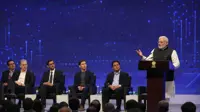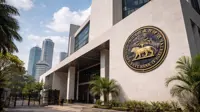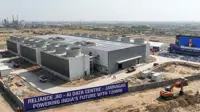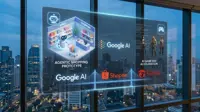Infosys is investing in advanced technology and skills in order to capture the opportunities that lie ahead and may have to sacrifice profit margins in the short run, says Salil Parekh, its chief executive officer.
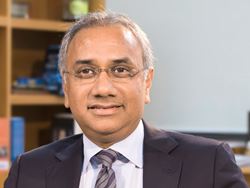
Speaking at an interview with the media in Bengaluru on Tuesday, the 53-year-old Infosys CEO said he didn’t get much time to settle in after taking over the helm of Infosys Ltd in January.
Parekh said he had talked to 48 clients and met with customers and employees in three continents to get his hands around the challenges facing the technology bellwether, adding that he’s determined to see every one face to face in the next two quarters.
He said Infosys is investing heavily in advanced technologies, including cloud computing and the Internet of Things. Besides, he said, the company needs to retrain employees, localise workforce in the US and build up sales staff. These involve pumping huge amounts as investments, whose returns take time to materialise.
“To build the future Infosys, we have to make those investments now,” said Parekh. “If we don’t do that now, the real concern is that we won’t be relevant to our clients in the future.”
Parekh also said that Infosys has the necessary skills and experience that will help the company face challenges and navigate difficult times in the years ahead.
But, he said, he is trying to get the company back to stable footing after the tumultuous tenure of his predecessor, who arrived in 2014 as a well-respected executive from SAP SE, but had to leave under pressure.
Parekh, a surprise choice as Infosys CEO after Vishal Sikka quit in August last year after a clash with the company’s founders over strategy and compensation, said his focus clearly is on urgent challenges at Infosys.
Investors, however, have not come to terms with Parekh’s views. On Monday, Infosys shares tumbled after the IT services giant said it expected operating margins to be 22 per cent to 24 per cent lower than in the previous years.
The scrip declined as much as 1 per cent in initial trading today, even as the market gained. The stock is trading at about the same level it did two years ago.
Parekh said Infosys gets around $2.8 billion in revenue from digital services against a potential market of $200 billion.
“We are best positioned to help clients navigate their journey into the future and take them to the next phase,” says Parekh. “Our clients are pushing us because they know we have the capabilities.”
Parekh also said he is looking at easing the transition by investing in digital capabilities. While the M&A team will be drawing up a short list of possible targets for acquisition, he said, he is also on the lookout for “opportunistic things that we can do that will help accelerate our digital pace.”
Infosys has added 3,900 workers, including 850 college graduates, in the US in the fiscal year that ended in March. It’s also building a 50-acre training center in Indiana.
These investments won’t get growth back to that of the boom years, he said adding that a 6 to 8 per cent increase in revenue this year is realistic.
Parekh joined infosys from Capgemini SE trumping all internal candidates and former executives. He joined Capgemini in 2000 as part of an acquisition and then built its India business to the point it competed with Infosys and rival Tata Consultancy Services Ltd.
 Speaking at an interview with the media in Bengaluru on Tuesday, the 53-year-old Infosys CEO said he didn’t get much time to settle in after taking over the helm of Infosys Ltd in January.
Speaking at an interview with the media in Bengaluru on Tuesday, the 53-year-old Infosys CEO said he didn’t get much time to settle in after taking over the helm of Infosys Ltd in January.
